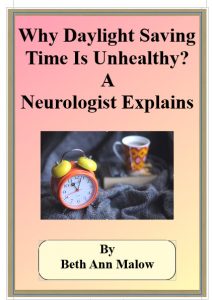AS PEOPLE IN THE U.S. PREPARE TO TURN THEIR CLOCKS AHEAD ONE HOUR IN MID-MARCH, I find myself bracing for the annual ritual of media stories about the disruptions to daily routines caused by switching from standard time to daylight saving time.
About a third of Americans say they don’t look forward to these twice-yearly time changes. An overwhelming 63% to 16% majority would like to eliminate them completely. But the effects go beyond simple inconvenience. Researchers are discovering that “springing ahead” each March is connected with serious negative health effects.
I’m a professor of neurology and paediatrics at Vanderbilt University Medical Center in Nashville, Tennessee, and the director of our sleep division. In a 2020 commentary for the journal JAMA Neurology, my co-authors and I reviewed the evidence linking the annual transition to daylight saving time to increased strokes, heart attacks and teen sleep deprivation.
